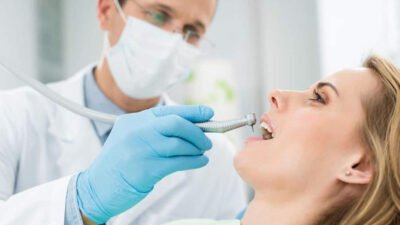Introduction
Taking the first steps to recovery from addiction can be one of the most significant and life-changing choices a person can make. Detoxification, or detox, is often the first hurdle, as it focuses on eliminating addictive substances from the body while caring for one’s physical and mental health. Evidence-based detox protocols and comprehensive support are critical to successful recovery, making professional centers like Detox in Atlantic City, NJ, immensely valuable. These facilities are dedicated to providing safe, individualized detox pathways that lay the foundation for lasting sobriety.
Understanding safe detox practices is more important than ever, with rising awareness about the need for medical oversight, mental health integration, and holistic support. Personalized treatment and ongoing aftercare also play pivotal roles in maintaining progress made during detox.
Understanding Detoxification
Detoxification acts as the body’s reset button, eliminating accumulated toxins from drugs or alcohol. When a person stops using a substance, their body begins to rebalance itself, which often results in withdrawal symptoms that can range from mild discomfort to severe health risks. The experience is highly individual—affected by the substance in question, length and extent of use, biological factors, and overall health. Recognizing the personal nature of detox is key; what works for one person may not be suitable for another.
Without proper guidance, people trying to detox alone may face medical emergencies or relapse due to unmanaged symptoms. That’s why professional support during detox is crucial—as it combines safety protocols with necessary emotional and psychological care. According to the Substance Abuse and Mental Health Services Administration (SAMHSA), medically supervised detox can prevent complications and create a stable starting point for long-term recovery.
Medical Supervision During Detox
Medical oversight is one of the safest and most effective approaches to detoxification. Within supervised settings, healthcare professionals monitor patients around the clock, tracking vital signs and managing symptoms such as seizures, dehydration, or intense cravings. This is especially important for those withdrawing from substances like alcohol or benzodiazepines, which carry higher risks for dangerous reactions and require specialized intervention.
In a clinical setting, potential complications are anticipated and immediately addressed. This structured support instills a sense of safety, so individuals can focus on stabilizing and beginning their healing journey. Effective medical detox programs combine physical care with psychological backing, ensuring individuals do not feel isolated during the most challenging stages of early recovery.
Medication-Assisted Detox Options
For many people, withdrawal symptoms can be a significant barrier to successful detox and continued sobriety. Medication-Assisted Treatment (MAT) addresses this by using FDA-approved medicines, such as buprenorphine, methadone, or naltrexone, to ease symptoms and cravings in opioid, alcohol, or nicotine addiction. These medications are always used as part of a comprehensive plan that also includes counseling or behavioral therapies, maximizing the chances for sustained recovery.
The American Society of Addiction Medicine supports MAT as a gold standard of care, recognizing its role in reducing relapse rates, supporting longer treatment retention, and lowering the risk of overdose. Decisions regarding MAT should always be based on individualized assessments by qualified professionals, who can ensure that each plan is medically appropriate and emotionally supportive.
Personalized Treatment Plans
There is no one-size-fits-all approach to addiction recovery. Personalized treatment plans evaluate not only substance use patterns but also co-occurring conditions like anxiety, depression, trauma, or medical issues. Plans often involve tailored therapeutic approaches, specific medications, and adjustments for cultural or family backgrounds. Individualized care makes detox safer, more comfortable, and more likely to result in lasting recovery.
Integrating Mental Health Services
Addiction and mental health frequently intersect—many people facing addiction also struggle with depression, anxiety, PTSD, or other disorders. Integrating mental health services throughout detoxification provides crucial support. Licensed counselors regularly evaluate patients, offer ongoing therapy, and help develop coping mechanisms to manage both withdrawal and underlying emotional struggles.
Without mental health support, psychological distress during withdrawal may fuel a cycle of relapse. Comprehensive programs that include therapy groups, one-on-one counseling, and psychiatric care address these dual challenges and create opportunities for total well-being, setting clients up for greater success as they transition to the next phase of recovery.
Holistic Approaches to Detox
Physical, mental, and emotional health are deeply intertwined. Holistic detox programs go beyond standard protocols by embracing complementary health practices such as yoga, mindfulness meditation, art therapy, and nutritional support. These interventions help reduce anxiety, stabilize mood, and foster a sense of purpose and self-compassion, essential tools in combating cravings and building resilience.
Studies have shown that regular exercise can reinforce recovery by lessening withdrawal severity and increasing positive emotions. Activities that nurture overall wellness, from regular meals to gentle stretching, contribute to the broader healing process and make detox less intimidating, more tolerable, and more empowering for participants.
Support Systems and Aftercare
Establishing a reliable support system is vital to long-term sobriety. Formal aftercare might include continued therapy, alumni groups, relapse-prevention workshops, or regular health check-ins. Informal supports—such as family, friends, or peer recovery groups—create a sense of belonging and hope that helps individuals through challenges after formal detox has ended.
Aftercare bridges the gap between initial detoxification and lifelong recovery, offering ongoing education, motivational support, and concrete relapse prevention strategies. The journey doesn’t end at detox; instead, building a strong safety net enhances motivation and accountability, making sobriety a sustainable and enriching reality.
Summary
Safe detox practices are the cornerstone of successful addiction recovery. By choosing medically supervised care, integrating mental health and holistic strategies, and building personalized plans with strong aftercare networks, individuals gain the confidence and support needed to progress toward long-term wellness. Accessible, compassionate resources serve as guiding lights for those seeking a new beginning—ensuring that every step towards sobriety is both safe and sustainable.



